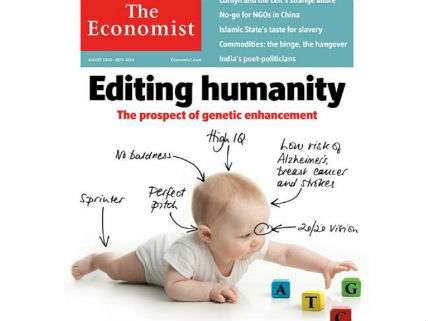Genetically Modifying Human Embryos Is OK, Say U.K. Regulators
Researchers will use CRISPR gene-editing technique to explore how human embryos develop.

The U.K.'s Human Fertilisation and Embryology Authority has approved the proposal by stem researchers at the Francis Crick Institute to use the CRISPR gene-editing technique to modify the genomes of donated surplus IVF embryos. The researchers will use CRISPR to turn genes associated with the development of the placenta off and on with the goal of figuring out why miscarriages occur more frequently in some women. The gene-edited embryos will be allowed to develop for 14 days and then be discarded.
The approval follows in the wake of the historic International Summit on Human Gene Editing held last December in Washington, D.C. As I reported then:
At the close of the summit, the organizers issued a statement that, while noting current safety issues with regard to using CRISPR for germline interventions, nevertheless declined to recommend a permanent ban on making inheritable changes in the human genome. The statement also rejected calls for a temporary moratorium on basic and preclinical research using gene-edited gametes and embryos. However, such gene edited cells should not be used to establish a pregnancy.
The HFEA's greenlight for the editing experiments is being hailed by researchers. From The Guardian:
"The ruling by the HFEA is a triumph for common sense," said Darren Griffin, professor of genetics, University of Kent, said. "While it is certain that the prospect of gene editing in human embryos raised a series of ethical issues and challenges, the problem has been dealt with in a balanced manner. It is clear that the potential benefits of the work proposed far outweigh the foreseen risks.
Sarah Norcross, director of Progress Educational Trust, called it "a victory for level-headed regulation over moral panic".
Nevetheless, it won't be long before the professional moral panickers, well, panic over this research. In fact, some have already pre-panicked. From Marcy Darnovsky, Executive Director of the Center for Genetics and Society:
"Allowing a form of human inheritable genetic modification will put the UK at odds with every other country that has ever considered it, as well as multiple international human rights treaties. Advocates say that approving these techniques will make the UK a scientific pioneer. In fact, it risks becoming a pariah."
For more background see my column, "Gene-Editing Human Embryos Is Ethical."


Show Comments (74)